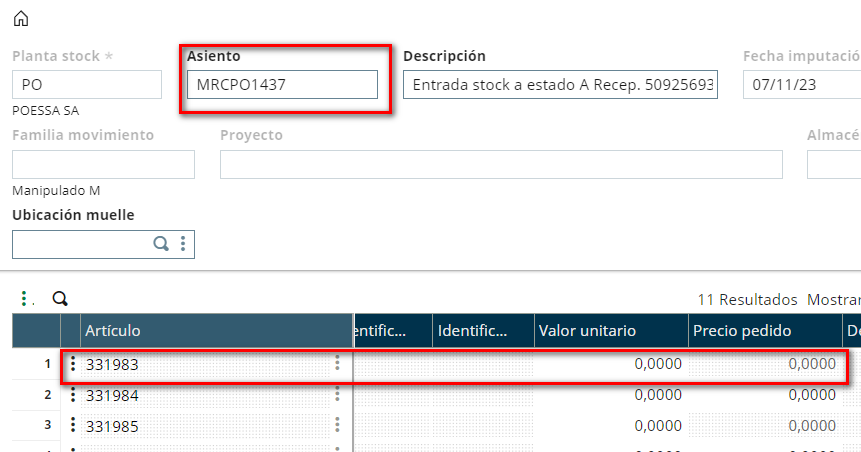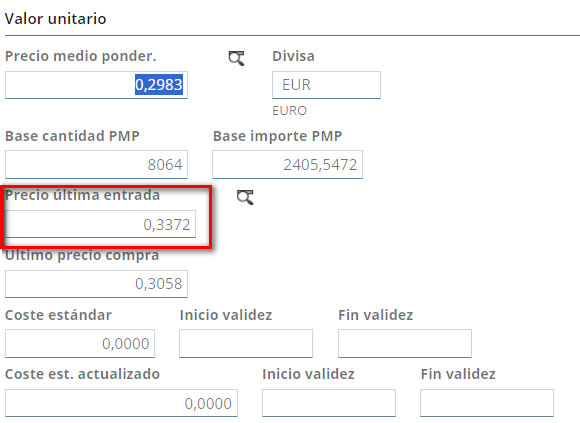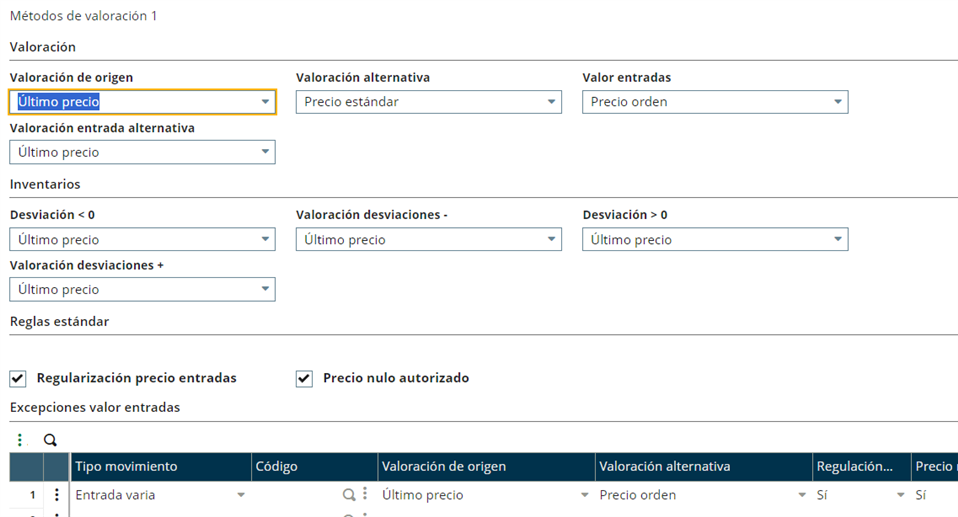Hello,
We have a problem with Miscellaneous Recepipts. We want to valuate them with "Last Recepipt cost".
The valuation rule details are:
- Receipt source: Order cost
- Receipt alternate: Last cost (i dont know whye the possible values are differents than the previous picklist).
- Exception: Miscellaneous Receipt; Valuation source = Last cost.
Example: in product-site "Last receipt cost" = 22. I create a miscellaneous receipt, qty=1, value=23. Therefore the product-site "last receipt cost" change to 23. I would like to maintain 22.


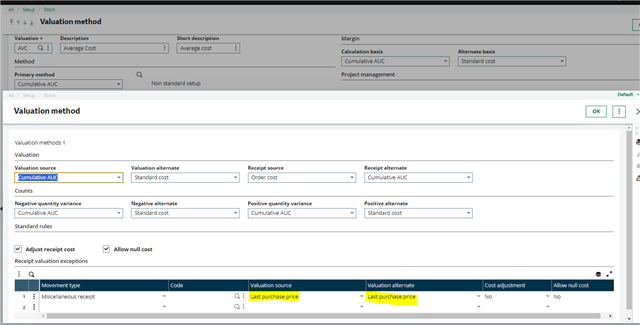
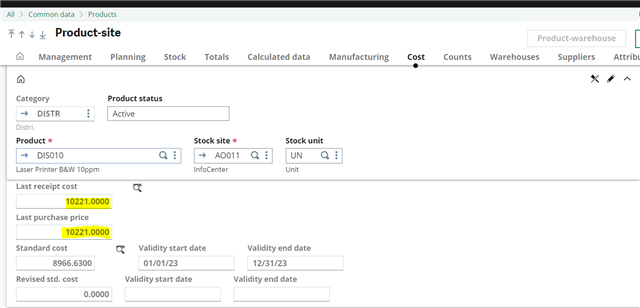
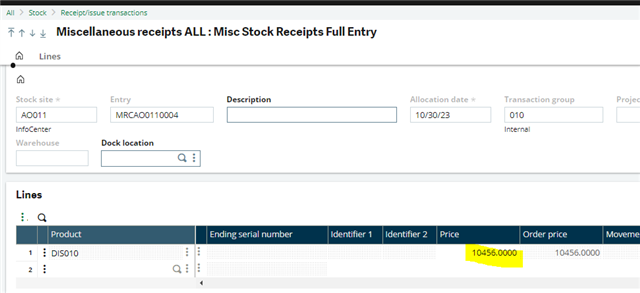
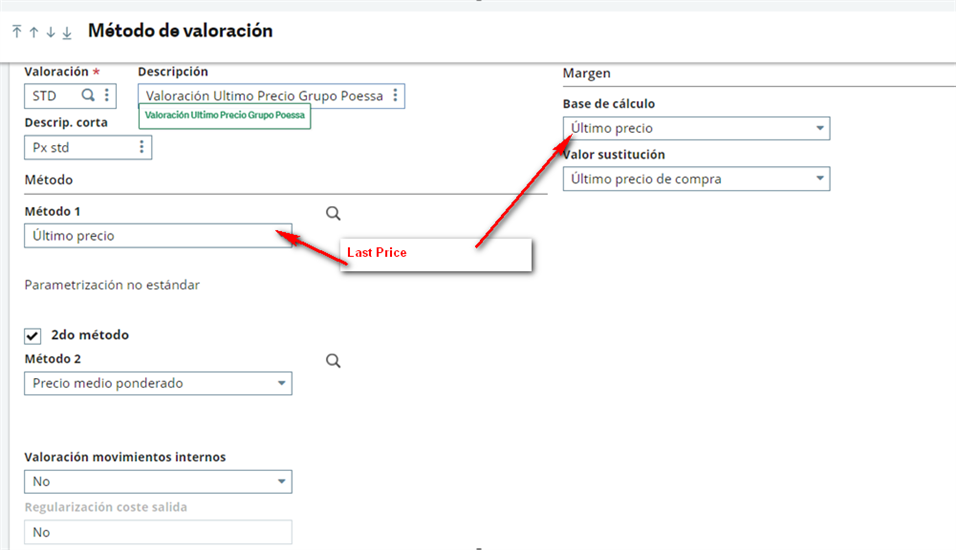
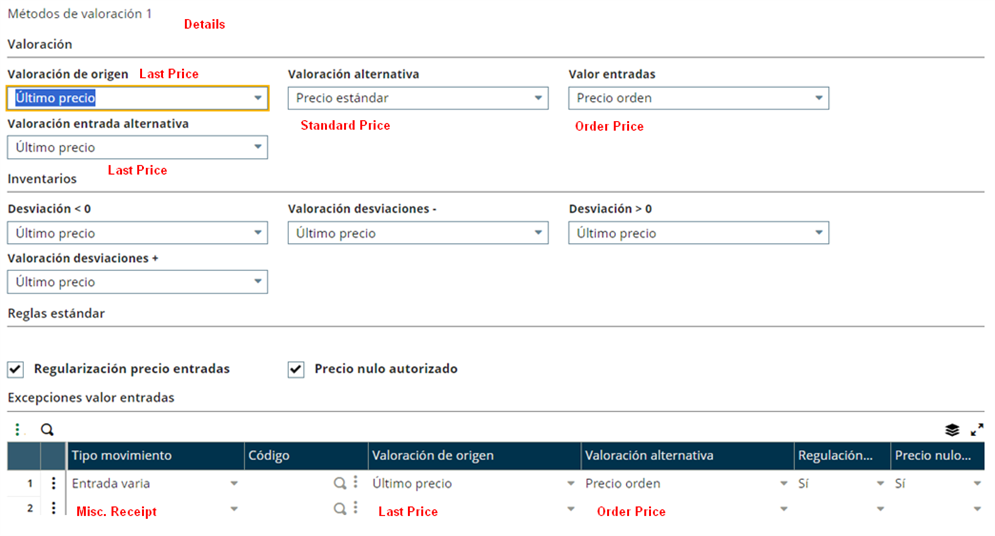
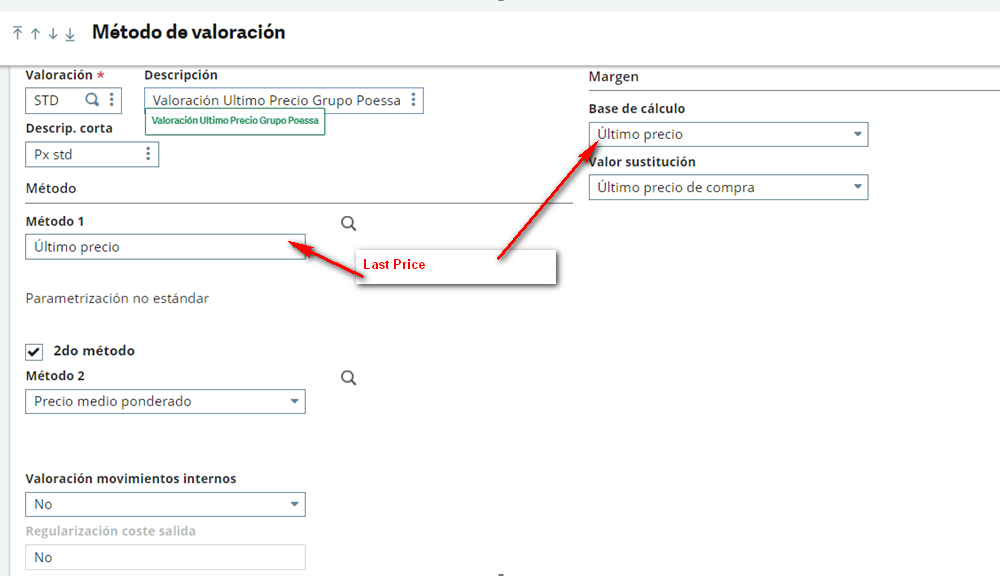 Example with Product 000145:
Example with Product 000145: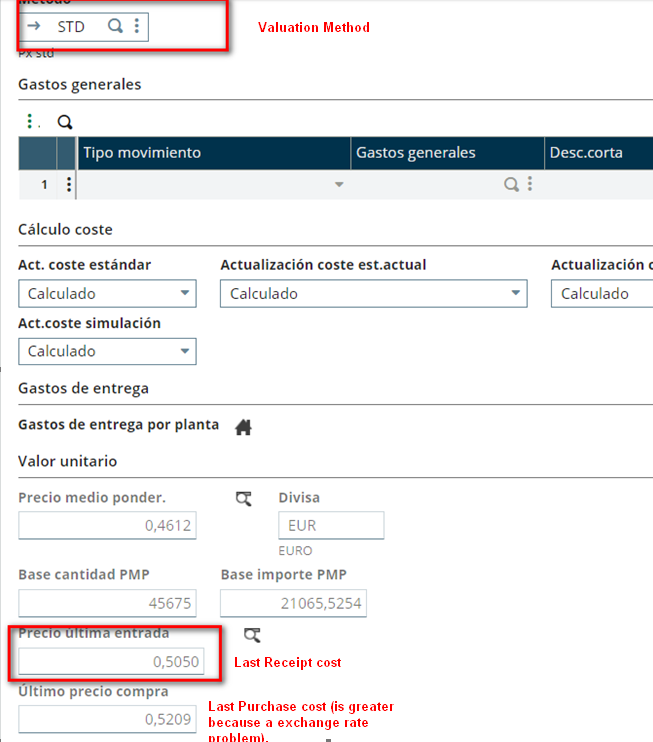
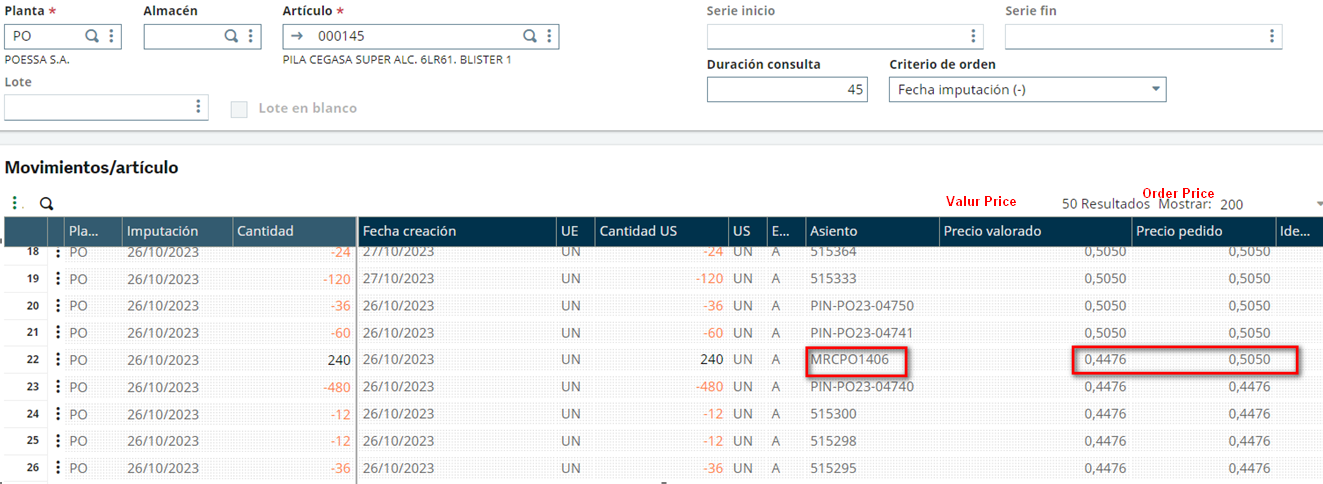
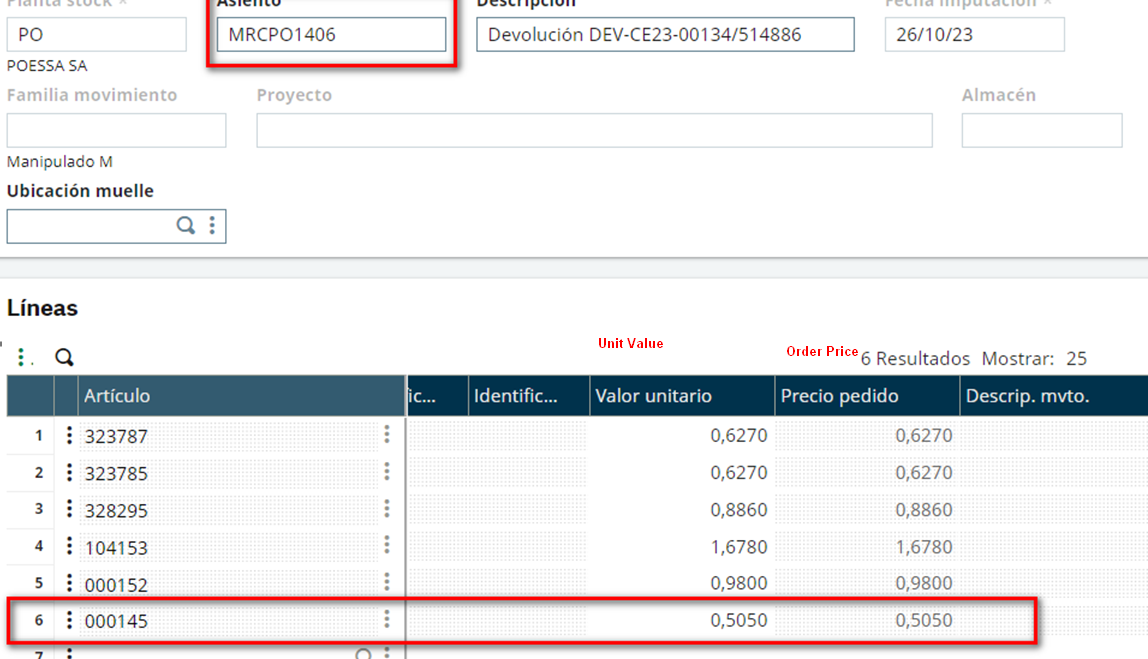
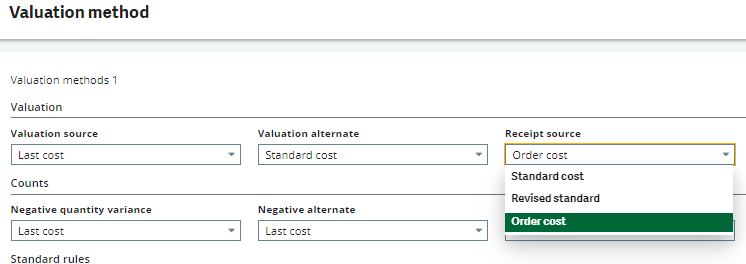
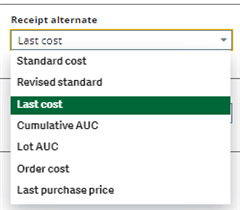

 "
"